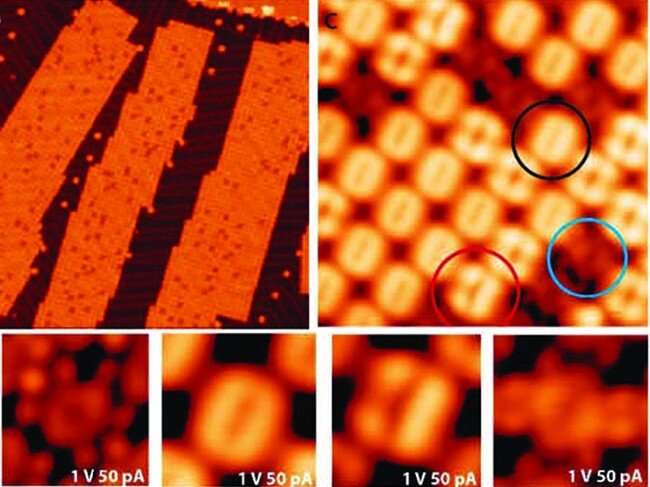Credit: David Écija. CC-BY-NC
The design of molecular systems on surfaces is crucial for the fundamental understanding of electronic transport. The development of molecular electronics, spintronic devices and quantum computation will only happen along with the precise control over the spin texture and its interaction with the surroundings. The Kondo effect is a phenomenon that has attracted much attention because of its potential in single-molecule spintronic applications. The Kondo effect results from the interaction between spin of magnetic impurities and the conduction electrons, resulting in a change of electrical conductivity below certain temperatures. This phenomenon has been extensively investigated on surfaces, particularly in metal macrocycles; however, the magnetism of lanthanide coordination complexes are largely unexplored.
Researchers at the Nanoarchitectonics on Surfaces Group at IMDEA Nanociencia, led by Dr. David Écija, have recently published their work on lanthanide-porphyrin species in the RSC journal Nanoscale. In their publication, researchers prepared dysprosium (Dy) porphyrins on a gold surface and studied their Kondo effect. Porphyrins are macrocyclic organic compounds with interest as pigments, catalysts and in molecular electronics. The researchers were able to switch off the Kondo resonance by removing one hydrogen atom of the macrocycle through tip-induced voltage pulses with submolecular precision.
The work led by Dr. Écija combines the on-surface design of 2D reticular porphyrin nanomaterials, coordination chemistry of lanthanides, low temperature scanning tunneling microscopy and spectroscopy with theoretical DFT calculations. The pre-metallated species featuring this Kondo resonance can be laterally manipulated to assemble artificial Kondo lattices. This research result funded by the European Research Council (ERC) manifests the potential of tip-induced coordination chemistry for spintronics that takes advantage of the inherent magnetic properties of f-block elements.
More information: B. Cirera et al, Lanthanide-porphyrin species as Kondo irreversible switches through tip-induced coordination chemistry, Nanoscale (2021). DOI: 10.1039/D0NR08992C
Journal information: Nanoscale
Provided by CORDIS
























